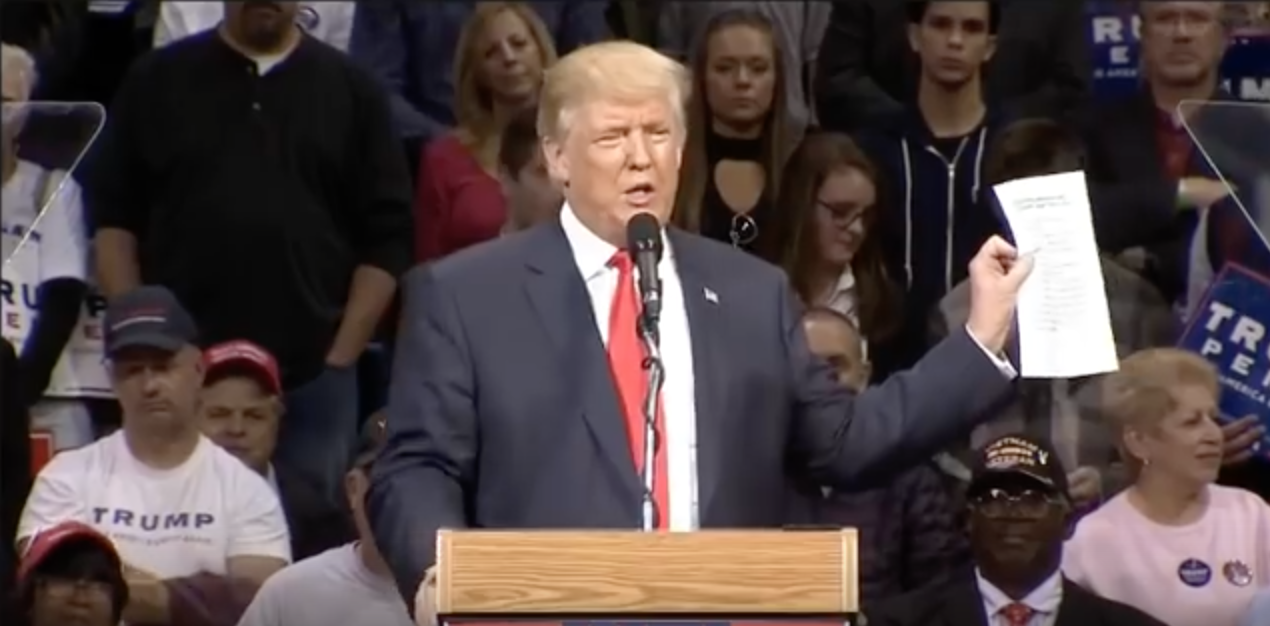Ninth Circuit Trims Executive’s Expansive Claims to Be Able Pixie Dust Executive Orders
As you’ve surely heard, the Ninth Circuit handed President Trump a huge loss last night, refusing to overturn the nationwide stay on his Muslim ban. The per curium opinion is particularly strong in asserting that courts do have the ability to review Presidential orders, even those that pertain to national security.
But there’s another part of the opinion I’m particularly interested in, because if it is not reversed, it creates a very important new limit on what the President can do with EOs.
One of the problems Trump created for himself was targeting Green Card holders — lawful permanent residents. That’s because LPRs have long term relations with the country and are accorded constitutional protections, both within and outside of the US. So long as LPRs remain affected by the EO, it will be legally problematic, at least as it pertains to them.
The Administration tried to undo that damage by having the White House Counsel, Don McGahn, write guidance on how to interpret the EO, basically stopping its application to LPRs. Within the hearing, the attorney representing the states noted that the Administration’s stance toward LPRs had changed about five times. But it was clear the judges were also unimpressed with changes the WHCO, as opposed to the President, made to an EO.
Here’s where they rule that a WHCO can’t just change an EO with policy guidance.
The Government has argued that, even if lawful permanent residents have due process rights, the States’ challenge to section 3(c) based on its application to lawful permanent residents is moot because several days after the Executive Order was issued, White House counsel Donald F. McGahn II issued “[a]uthoritative [g]uidance” stating that sections 3(c) and 3(e) of the Executive Order do not apply to lawful permanent residents. At this point, however, we cannot rely upon the Government’s contention that the Executive Order no longer applies to lawful permanent residents. The Government has offered no authority establishing that the White House counsel is empowered to issue an amended order superseding the Executive Order signed by the President and now challenged by the States, and that proposition seems unlikely.
Nor has the Government established that the White House counsel’s interpretation of the Executive Order is binding on all executive branch officials responsible for enforcing the Executive Order. The White House counsel is not the President, and he is not known to be in the chain of command for any of the Executive Departments. Moreover, in light of the Government’s shifting interpretations of the Executive Order, we cannot say that the current interpretation by White House counsel, even if authoritative and binding, will persist past the immediate stage of these proceedings. On this record, therefore, we cannot conclude that the Government has shown that it is “absolutely clear that the allegedly wrongful behavior could not reasonably be expected to recur.” Friends of the Earth, Inc., v. Laidlaw Envtl. Servs., Inc., 528 U.S. 167, 189 (2000) (emphasis added).
In short, they’re arguing that to make the EO legal with respect to LPRs, the President himself is going to have to change the EO, not McGahn.
As most longtime readers know, I’m obsessed by the way that John Yoo pixie dusted EO 12333 by basically saying the President doesn’t have to modify an EO he is blowing off, by blowing it off he is simply modifying it. In a 2001 opinion (and a 2002 letter to the FISC) he wrote,
[T]here is no constitutional requirement that a President issue a new executive order whenever he wishes to depart from the terms of previous executive order. In exercising his constitutional or delegated statutory powers, the President often must issue instructions to his subordinates in the executive branch, which takes the form of an executive order. An executive order does not commit the President himself to a certain course of action. Rather than “violate” an executive order, the President in authorizing a departure from an executive order has instead modified or waived it.
George Bush used that ruling to be able to disseminate Stellar Wind data even though his EO said you could not disseminate SIGINT.
While this ruling does not directly affect that interpretation, it does suggest that only a President can alter an EO (or, alternately, he must first confirm that someone else modifying it has been delegated the authority to do so). So while it doesn’t entirely shut down the possibility of further pixie dusting, it does make such things harder. It does give people reason to challenge any such changes to an EO.
As I noted the other day, I don’t think John Yoo was so much complaining about Trump’s abuses, as complaining that the way he implemented his abuses might do permanent damage to claims of expansive Executive authority. Let’s hope Trump has already done so by refusing to formally alter an EO his WHCO recognized was vulnerable to legal challenge.

